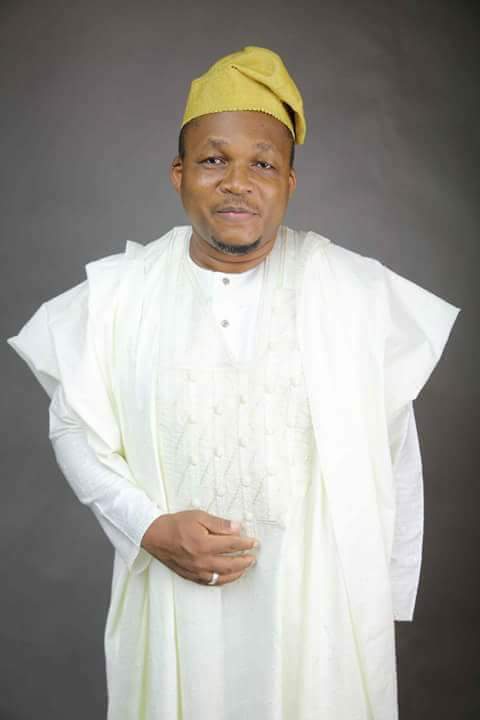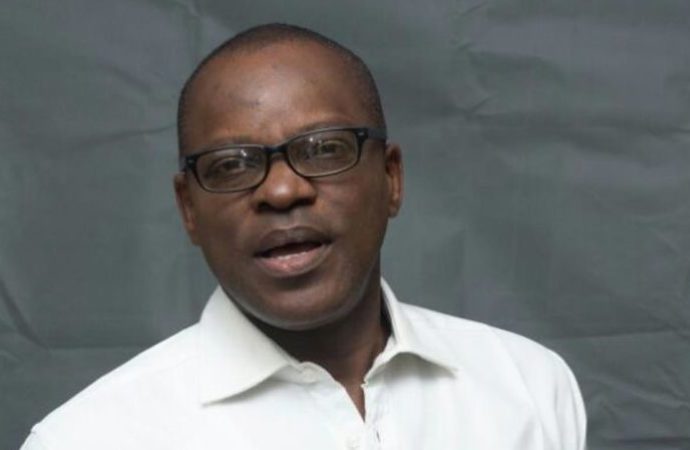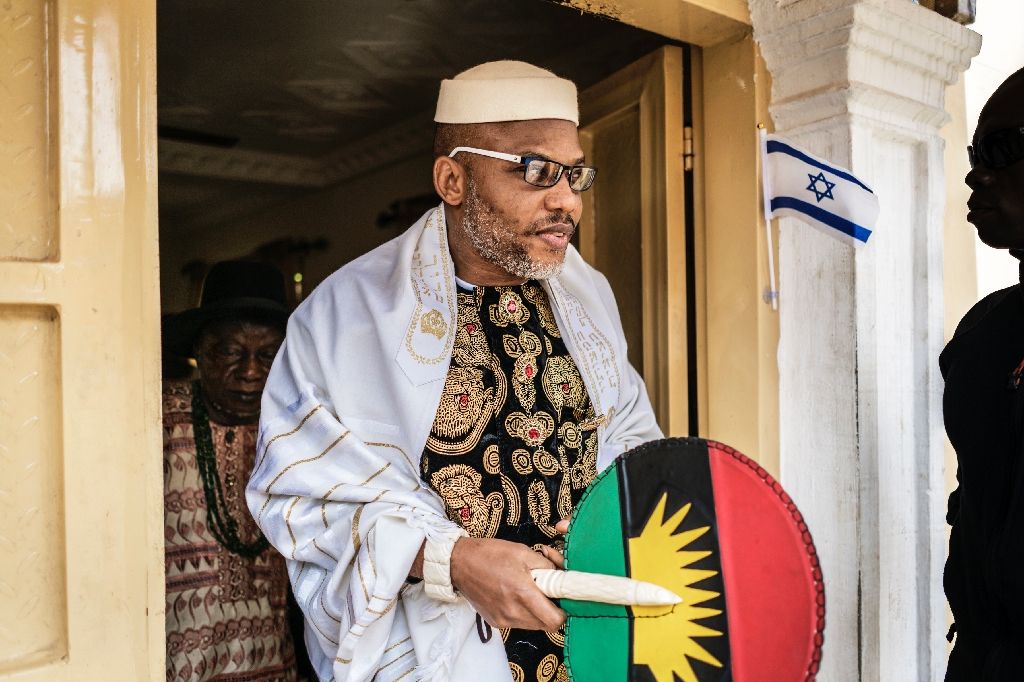2019: No need to panic, Nigerians will vote the right leader – Adesoye

Shola Adesoye is the Serving Overseer of the Lighthouse Ministries International and Pastor of the Lighthouse Church, Abuja. He is confident that there is no need to panic over who becomes the leader of the country after the 2019 election, for him, Nigerians will decide who will lead them. Adesoye said he is passionate about Nigeria and that all he does is geared towards nation-building. In this interview with MATHEW DADIYA, he spoke about politics, the effects of religion on the society and the way forward for the nation.
Nigeria’s developmental problems are often hinged on bad leadership, how can we get it right?
There is the saying that ‘people deserve the kind of leaders they get.’ Our leaders are not Ghanaians, they are Nigerians; leaders who are part of the system. So what do we do? Since our return to democratic governance in 1999, have we had the best leadership Nigeria could offer? No! We have had leaders selected from those who have been bold enough and willing to vie for office, but definitely not the best of us. In other words, there are people who could have led Nigeria better; people who have the capacity, capability, competency and who also know what it takes. But it is either that they are not politically inclined or the political structure we have does not allow the best of us to emerge. In the run-up to the 2019 general elections, we have seen more people merge on the political stage and this is encouraging. We need to encourage others and seek to push against the odds. We also need a critical mass of both the old and the young to join political parties, movements and families and we will eventually get leadership right, if we follow this path.
What is your take on the forthcoming general elections? There are many people contesting for president. We have the likes of Muhammadu Buhari, Donald Duke, Obi Ezekwesili, Atiku Abubakar, Fela Durotoye, Kingsley Moghalu, Tanko Yunusa and Ahmed Buhari, to name just a few. I want to salute all those who have dared to step out at this time. For me, it’s not so much about winning, as it is about deepening our political process. If we keep at this, we will get it right eventually. The candidate to beat is President Muhammadu Buhari and it is up to Nigerians to decide whether or not he reflects their hopes and aspirations and has performed well enough to be given a second term. If not, there are numerous options available. Ultimately, Nigerians will decide who they want to lead them as President and at all other levels of government. How does religion help Nigeria as a nation?
The term ‘religion’ in itself is one that I personally do not like, because it means ‘return to bondage’ in Latin. (re-ligare). So, being a pastor, anything that speaks of bondage is not what I am comfortable with. Nigeria is clearly a religious country. If you drive around the country, you are bound to see articulated trucks with all manner of religious inscriptions on them (both Islamic and Christian). This is a clear evidence of how we view religion. The proliferation of religions in Nigeria is very obvious; the landscape is filled with religious symbols. I can say that if you throw a stone in any direction in your neighbourhood, it would most likely land on a religious building. The franchising of churches has also led to a massive increase in their number. The real issue is, how has religion helped development? This is what we need to ask ourselves. If the number of religious buildings in a country is meant to be a reflection of the rate of development or a reflection of moral values, it is clear that religion has not helped us as a nation.
What are your views on the current government’s anti-corruption war?
Well, the current administration rode to power on the wings of the anti-corruption mantra. A look at the corruption index will guide my answer to this question. In 2016, a survey was published by Sahara Reporters, stating that 84% of Nigerians was satisfied with the Buhari administration and the way it was fighting corruption. In 2018, Transparency International released a report stating that Nigeria had dropped from the 136th to the 148th position on the corruption perception index. If these parameters are anything to go by, it means the government has not done too well, especially as perceived by Nigerians and the global community. Quite clearly, we have seen a lot of arrests, funds recovered and prosecution achieved, but very few convictions. A lot more needs to be done to send the right signal to Nigerians. The body language of government has not also helped matters, especially when it comes to the politics of the country. Nigerians have witnessed the defection of many perceived corrupt persons from the PDP to the APC, especially before the 2015 General Elections and have also seen politicians defecting to the ruling party, in order to gain immunity. With this trend in the politics of the country, the anti-corruption war is still a long way from being actualised. The Babachir and Adeosun sagas, to name a few, are still fresh in the minds of Nigerians.
Nigerians seems to have lost hope in the current administration, with the hardship and drowning economic situation, what is your advice to them?
We are over 180 million people and we must accept that we have no any other nation except Nigeria. There has been a lot in the news about Nigerians dying in foreign countries like Libya and South Africa, because they were looking for a better life, but one thing I can say is that we need to keep hope alive. You know, no matter what people may think about Nigeria, whether they call it an artificial creation of the British Empire or whatever, I believe that we are not bound together as a nation by accident. Nigerian citizens must also realise that they have the power to change their leaders by the power of their vote, if they are not satisfied with leadership. Let’s also understand that leadership in Nigeria is not only about the seat of the President, but also the other tiers of government; from the local governments to the National Assembly. This, I believe, needs the special attention of Nigerians. While we keep hope alive, let us know that we can effect change as citizens. We should be willing to push for the kind of leadership that we want at the 2019 elections and in the future.
What is your reaction to the killing in the northern part of the country, with the two major religions accusing each other?
Well, this is a very sensitive issue. As someone who was born in Northern Nigeria and has lived in the North most of my life, it is obvious that this is not the Nigeria of my childhood. We have become a people divided along both ethnic and religious lines. Let’s look at Jos, for example. The killing in Jos began in 2001 and was over disputes relating to the Jos North Local Government leadership – indigene/settler issues – and the distribution of resources. Today, that has transformed Plateau State into a killing field. I was living in Kaduna during the 2000 Sharia crisis riots and a once peaceful city became divided by religion. Throw into this mix is the herdsmen insurgency and all the other issues and the truth is that we are sitting on a keg of gunpowder. Government needs to show that it is committed to ensuring security and peace by not encouraging impunity. The Bible says that as long as a sentence against an evil deed is not speedily executed, the hearts of men will be set to do evil.








